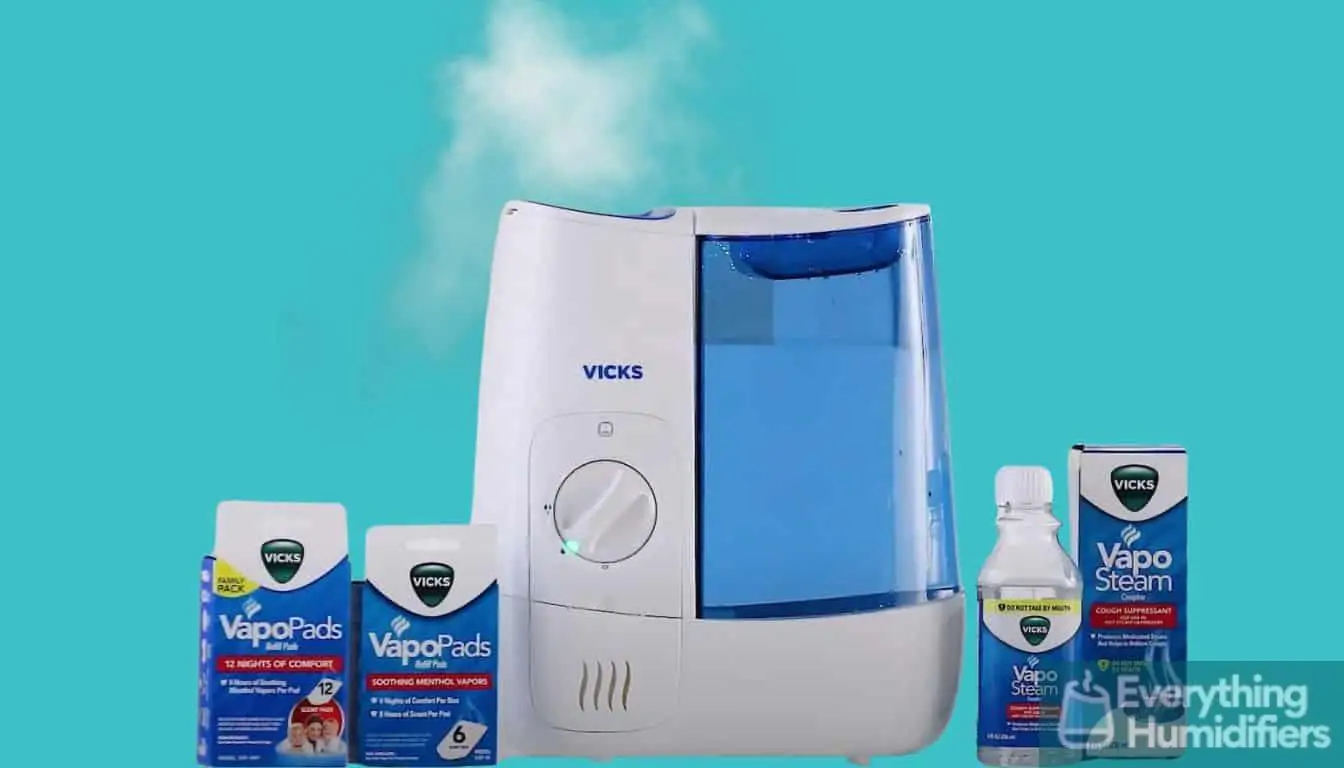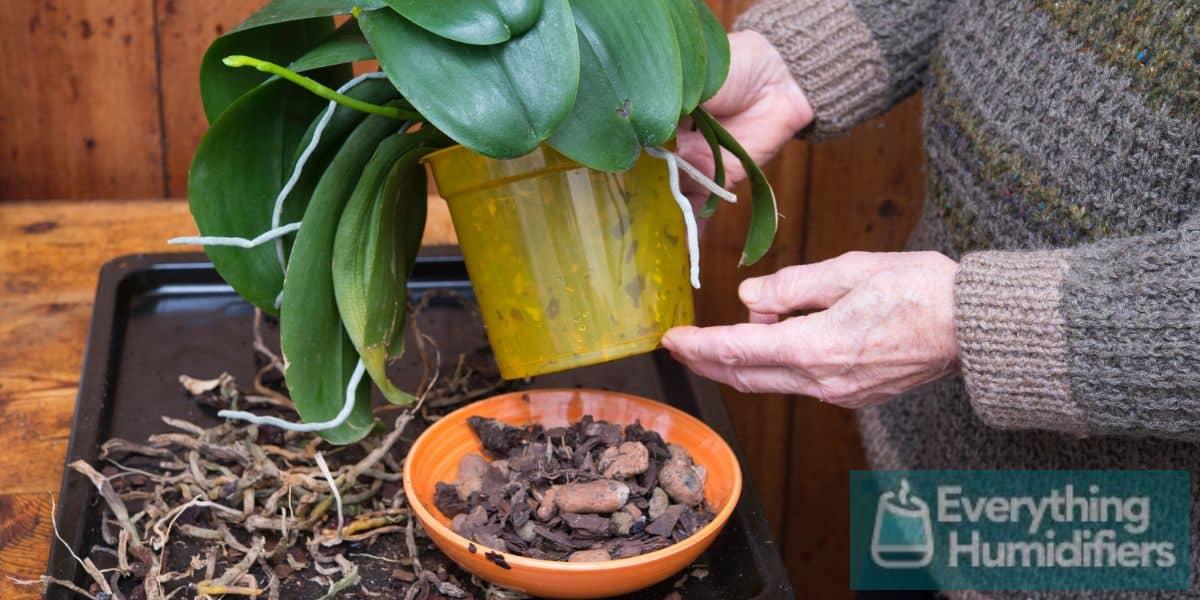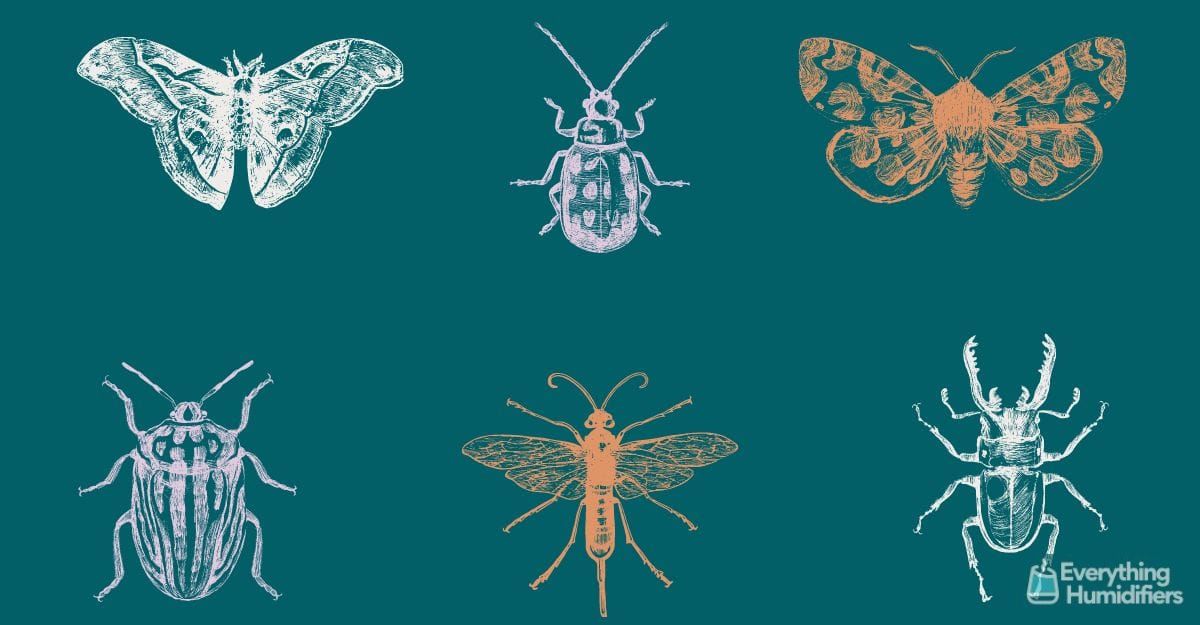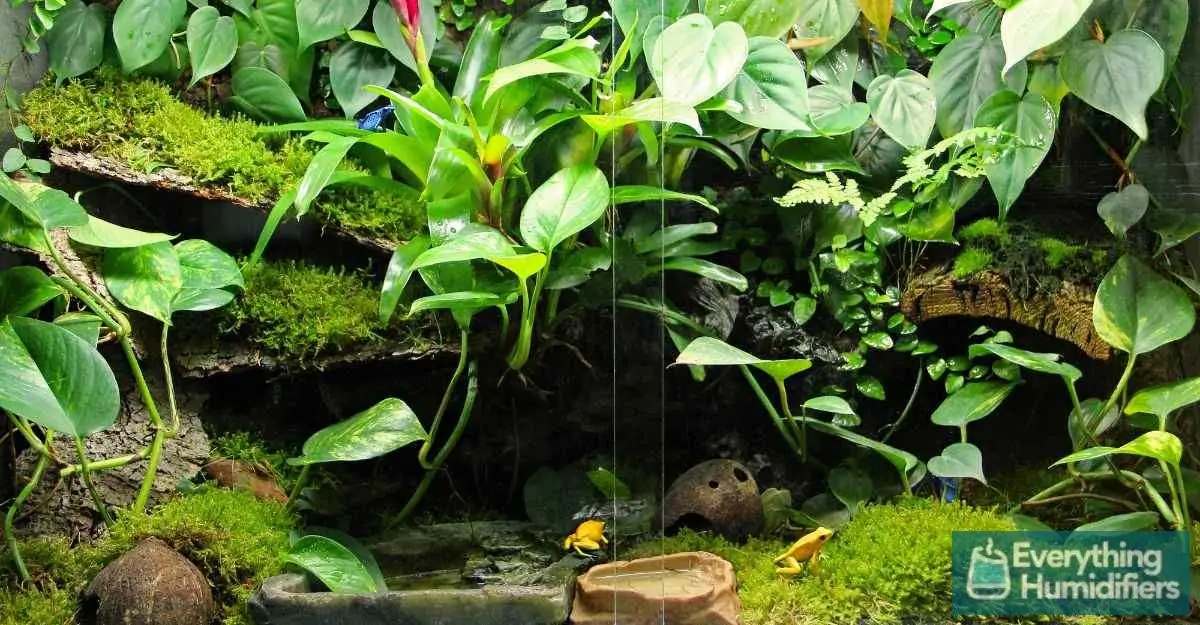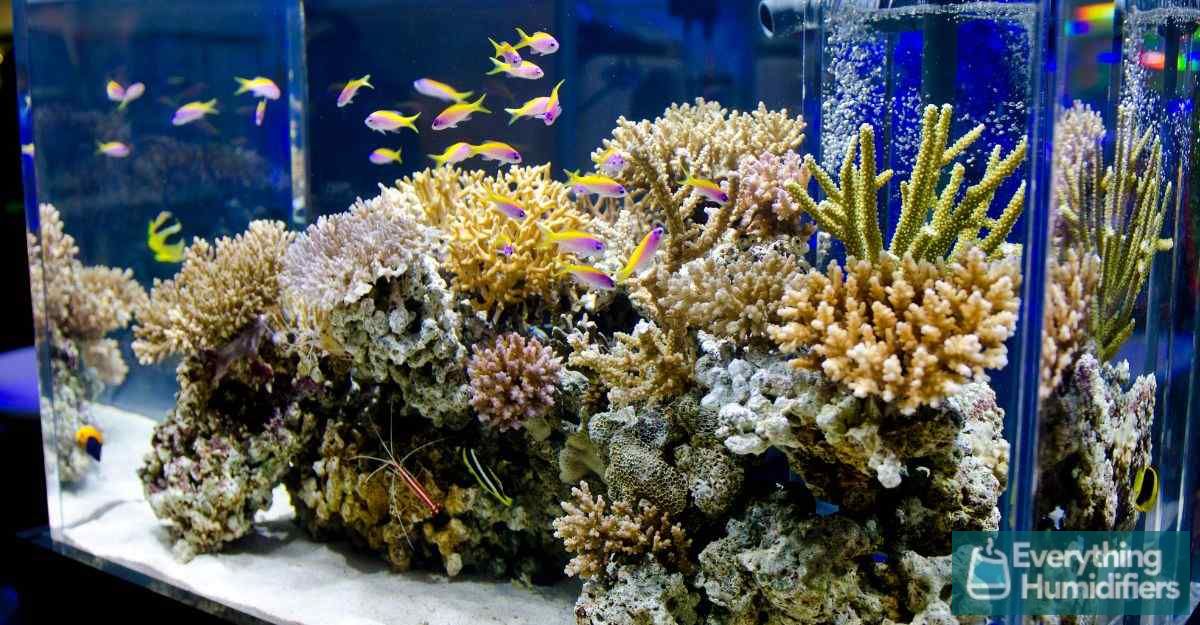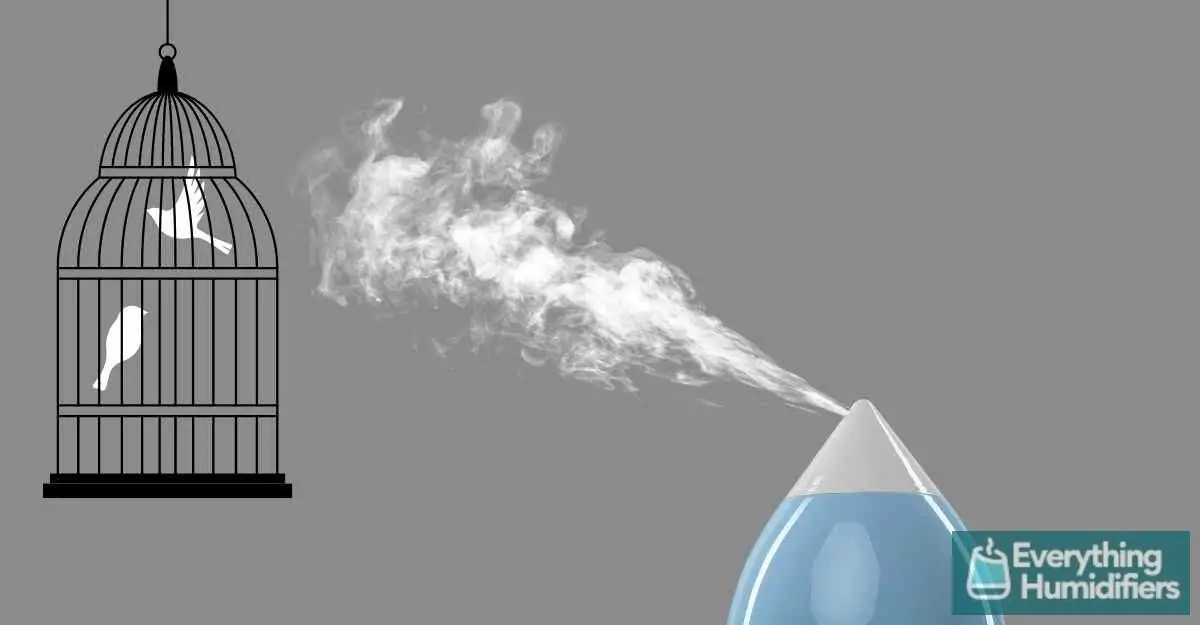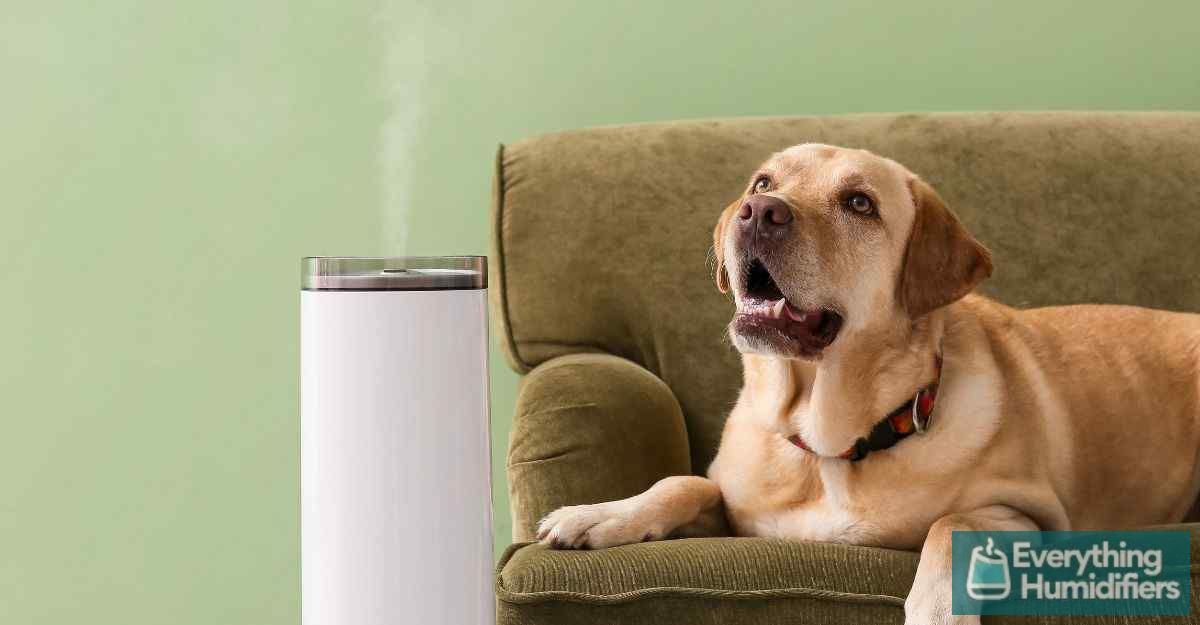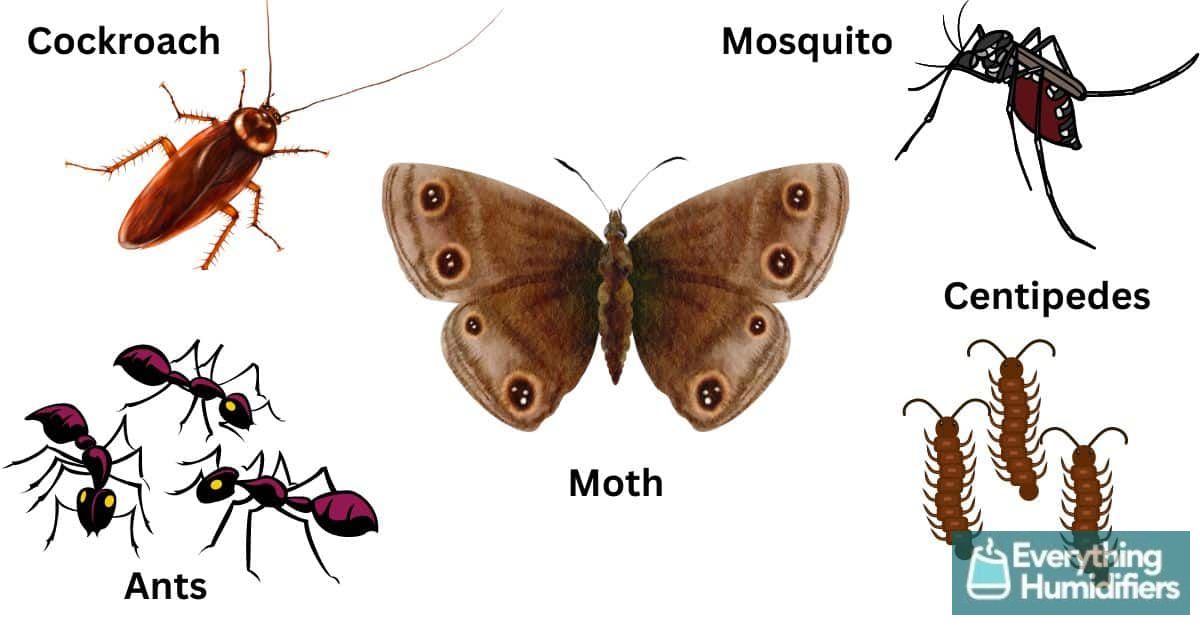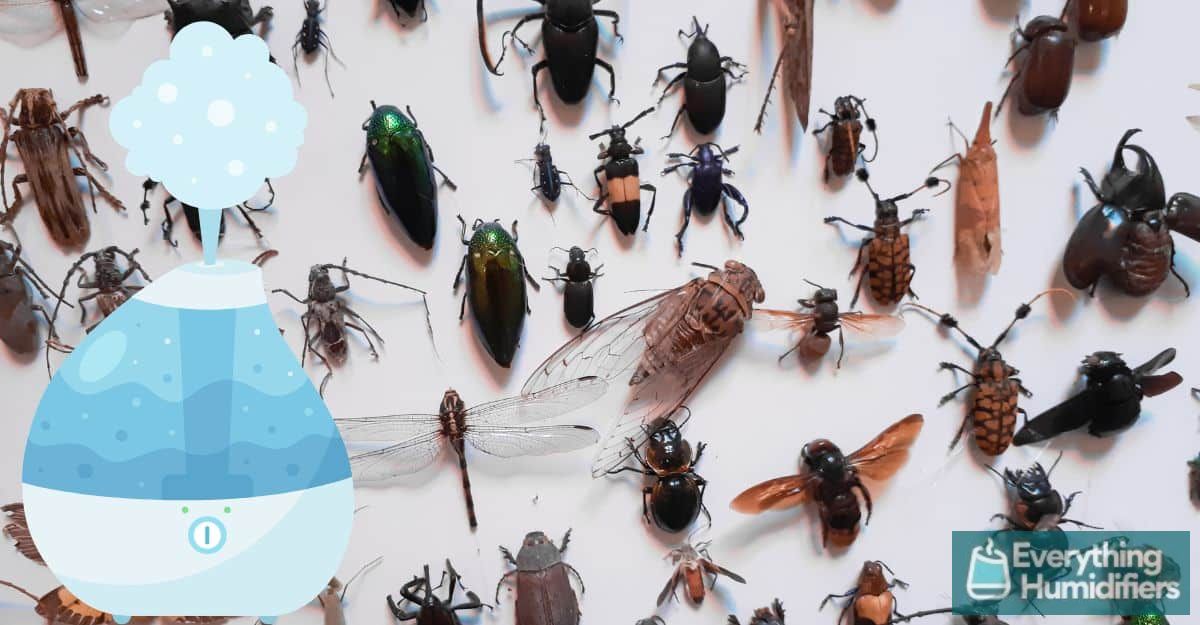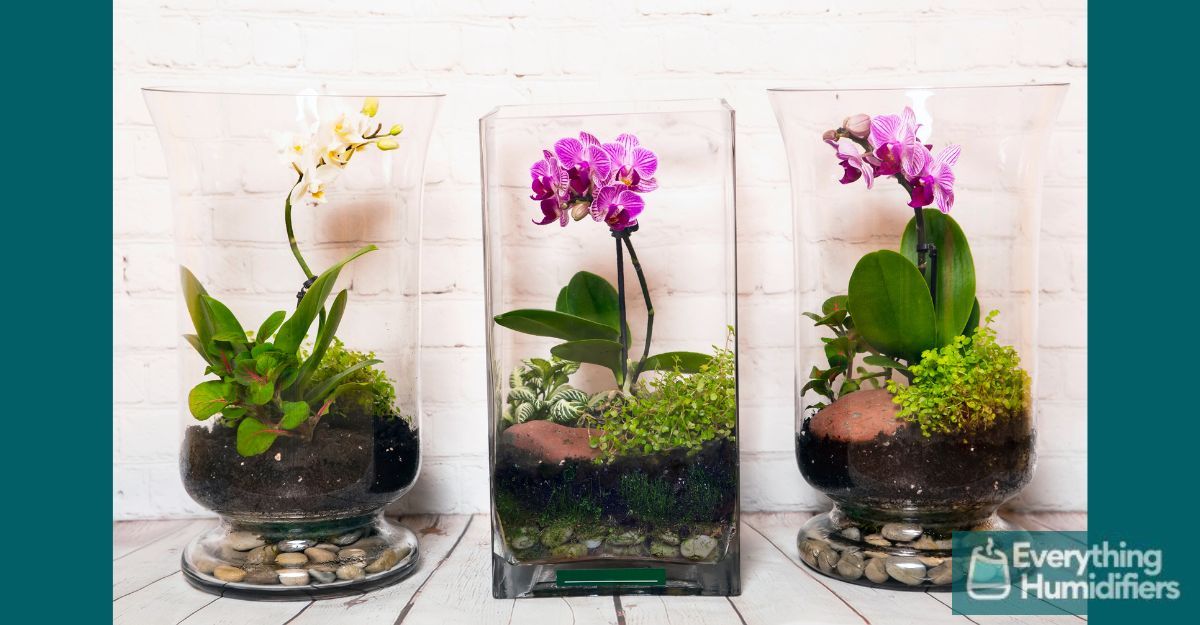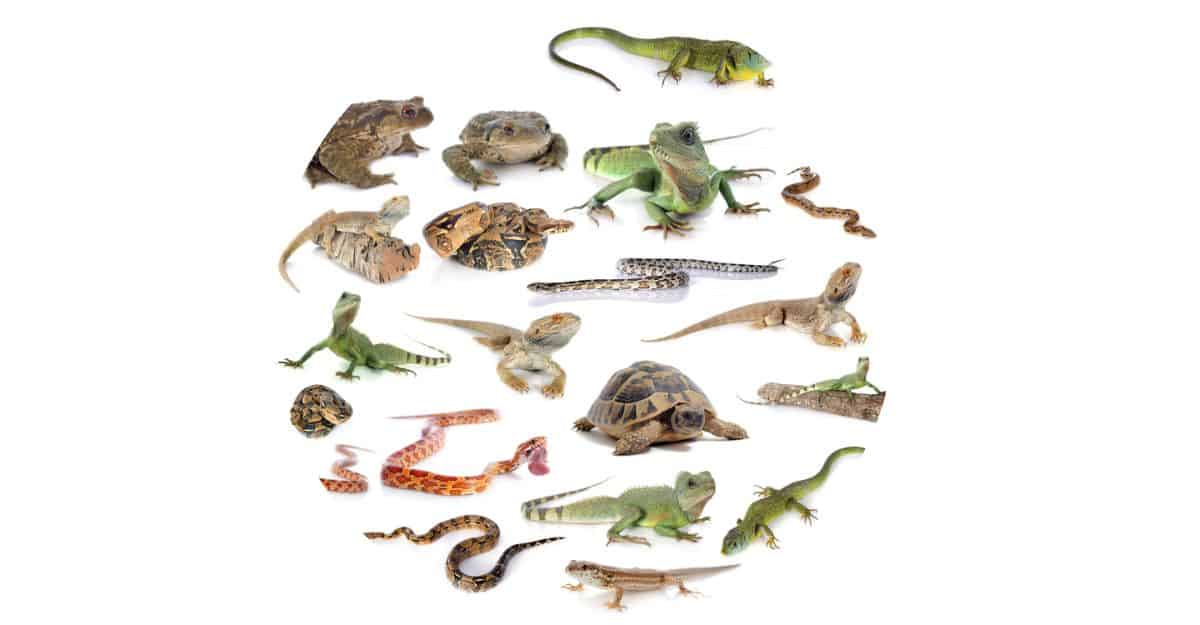In this article, we will explore the question – Are humidifiers safe for small pets? We will look at different types of humidifiers for small pets and learn how to ensure that your pets are safe.
Humidifiers can keep our home environment comfortable, benefiting both humans and pets. When installing a humidifier, you must ensure it does not harm you or your pets and that the humidity levels are monitored.
For many animals, controlling humidity is essential. Dry skin, respiratory issues, sneezing, coughing, and general discomfort can all be brought on by low humidity.
Table of Contents
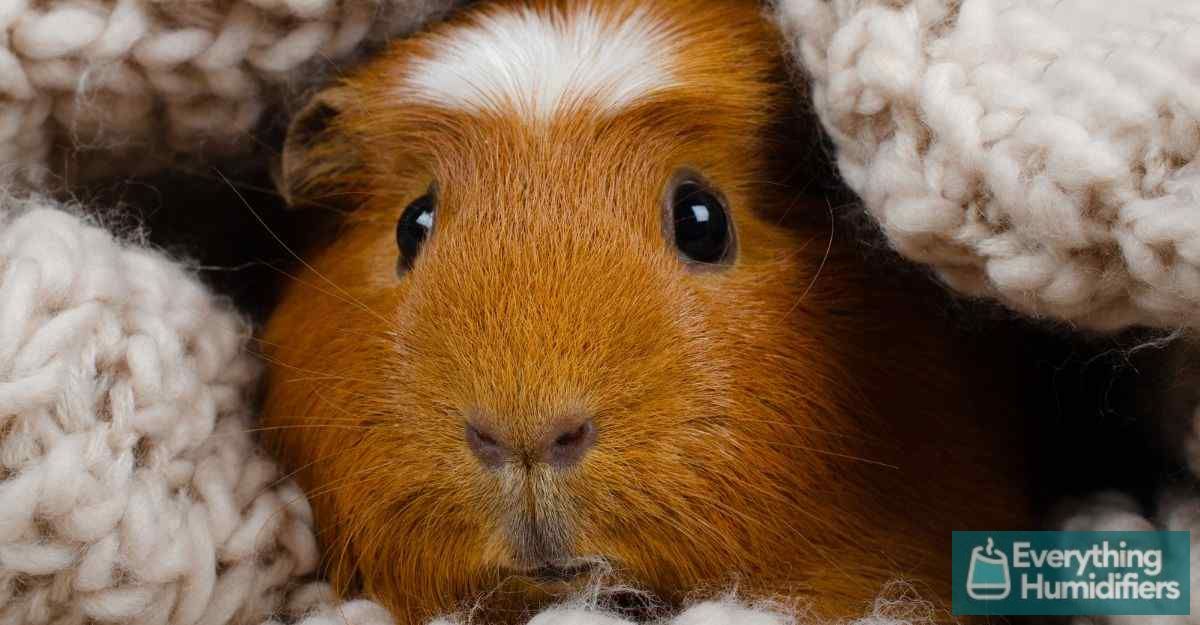
Affiliate disclaimer
As an affiliate, we may earn a commission from qualifying purchases. We get commissions for purchases made through links on this website from Amazon and other third parties.
Which small pets are susceptible to low humidity?
Let’s hop, swim, crawl, or fly right in and understand how humidity affects different pets.
Amphibians
Amphibians like frogs, toads, and newts rely on adequate humidity for their skin health and overall well-being. Insufficient humidity can cause dry skin, difficulty breathing through their skin, and increased susceptibility to infections.
For optimum health, “Do frogs need a humidifier?” In this post, you may learn more about them.
Arachnids
Small pets like tarantulas and scorpions require specific humidity levels to support their respiratory function and prevent desiccation. Inadequate humidity can result in dehydration and difficulty molting.
Chinchilla
In their natural habitat, these small rodents have adapted to low humidity levels, and their fur is designed to retain moisture. When exposed to high humidity, their fur can become damp, leading to various health issues, such as mold growth or respiratory problems.
On the other hand, a lack of humidity can cause the chinchilla’s fur to become brittle and prone to breakage. Therefore, maintaining the ideal humidity level is crucial for their well-being.
The ideal humidity range for chinchillas is generally between 40-60%. Love My Chinchilla has a great article about the Ideal Humidity for a Chinchilla.
Guinea Pigs
Extreme humidity and dryness are not well tolerated by guinea pigs. Low humidity can result in respiratory problems and dry skin, whilst high humidity can induce heat exhaustion.
Depending on the exact breed and environment, maintaining a humidity level of between 40 and 70% is typically advised for guinea pigs.
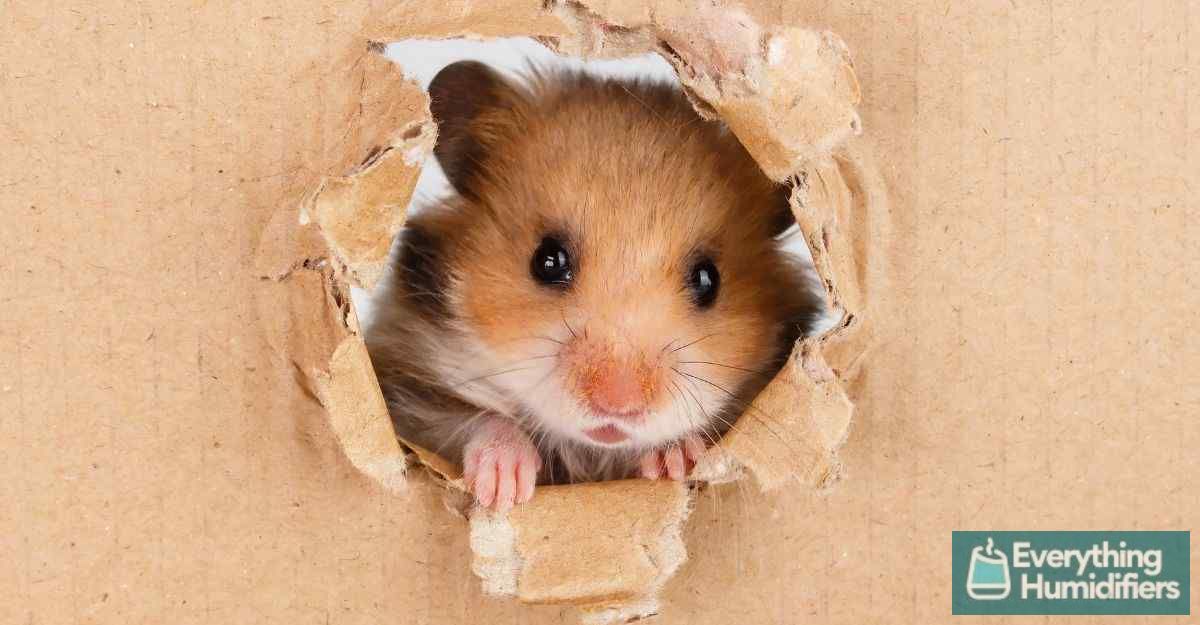
Hamsters
Hamsters are resilient to low humidity, but extremely dry conditions can cause dry skin and respiratory discomfort. Providing a moderate humidity level can help support their overall well-being.
Mice
Mice are relatively resilient to low humidity levels compared to some other animals. They are adaptable and can tolerate various environmental conditions, including humidity variations. However, excessively low humidity can still have some potential effects on mice.
Rabbits
While rabbits are not highly susceptible to low humidity, arid environments can contribute to dry skin and respiratory irritation. A 30-50% humidity level is generally suitable for rabbits to ensure comfort and prevent skin-related problems.
Rats
Rats are also relatively tolerant of varying humidity levels. However, excessively low humidity can lead to dry skin, respiratory discomfort, and potential issues with their delicate respiratory systems.
Reptiles
Many reptiles, such as snakes, lizards, and turtles, require specific humidity levels to maintain proper hydration and shed their skin effectively. Insufficient humidity can lead to dehydration, difficulty shedding, and respiratory issues.
Small birds
Some types of tiny birds, including parakeets and cockatiels, do well in conditions with moderate humidity. These birds may experience dry skin, respiratory difficulties, and feather problems as a result of low humidity.
For information about our feathered friends, see our article “Are Humidifiers Good for Birds?”
Small mammals
Small mammals like hedgehogs and sugar gliders may also be sensitive to low humidity. These pets require a proper moisture balance to support their skin health, prevent dryness, and ensure overall comfort.
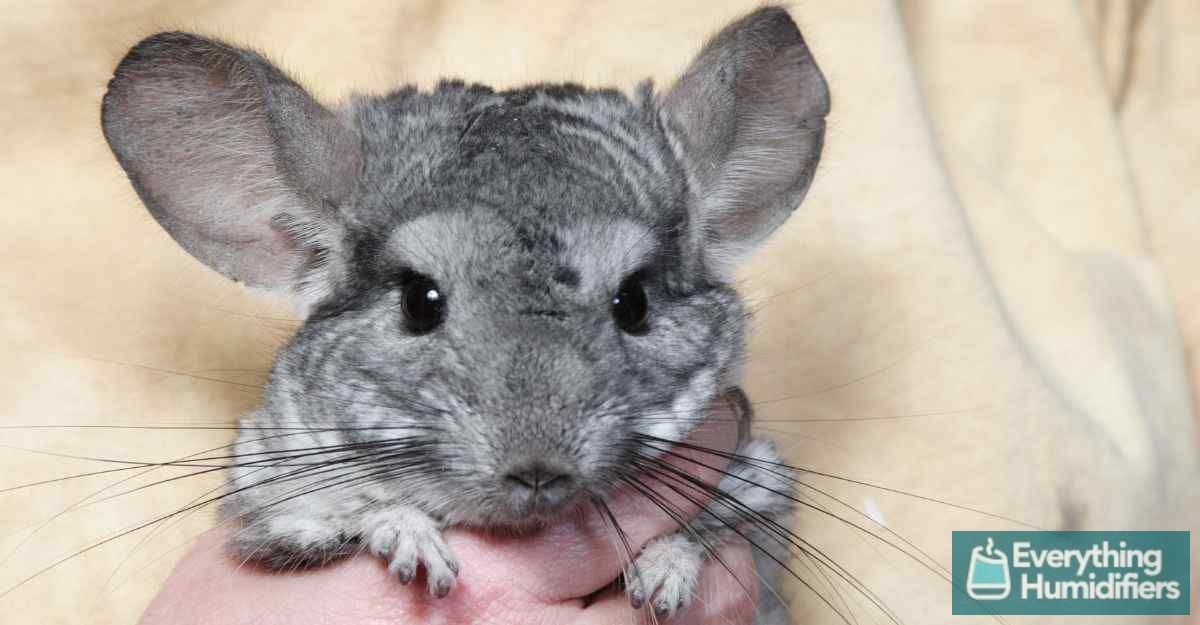
Recommended humidity levels for some common small pets:
| Pet Type | Recommended Humidity |
| Chinchilla | 50% or lower |
| Guinea Pig | 40 to 70% |
| Hamster | 30 to 65% |
| Rabbit | 30 to 50% |
| Rat | 40 to 60% |
| White Mice | 30 to 65% |
Best Humidifier Types for Small Pets
Cool mist humidifiers – Because they don’t use hot water, they are generally considered safer than other types. They can be ultrasonic or evaporative.
Ultrasonic humidifiers – These models are quiet and use less electricity. They emit visible water mist vapor rather than hot steam, making them safer for pets.
Evaporative Humidifiers – These devices are also energy efficient and emit moisture into the air via evaporation, so no visible mist exists. They are as noisy as a small fan.
DO NOT choose a warm mist humidifier – These models use elements to warm water to create mist. Where there is heat, there is a risk to your pet.
Read our article ” How Humidifiers Work and Their Uses ” to learn more about their differences.
How to ensure your humidifier is safe for pets
Pet-safe models
Check that the model you plan on buying is pet-safe? What does this mean? Consider the below list. This will go a long way toward reducing the stress of worrying about your humidifier.
Use distilled water
Both tap and hard water contain minerals that build up in the humidifier tank and are expelled into the air via the moisture emitted. When the water evaporates, white dust floats settles on furniture, food, and pet cages, and can cause respiratory problems.
Depending on the amount of minerals in your water, using distilled or filtered water alleviates the formation of white dust that can be an allergen for humans and pets.
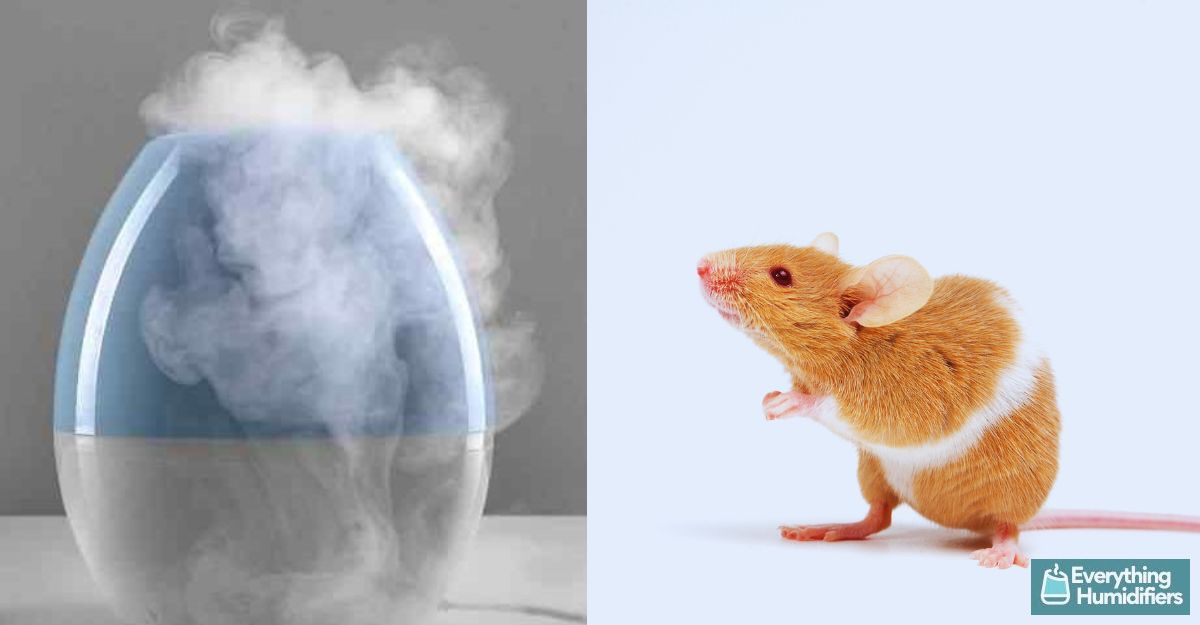
Visual Stimulant
Ultrasonic humidifiers, in general, emit a visible mist. The higher the humidity that is needed, the more fog, which could have your pet mesmerized or fixated on trying to catch it, which could be distracting and unsafe.
Noise
Evaporative humidifiers use a fan to evaporate water from a damp filter, so they will have noise depending on how high you turn the fan up. If your pet is noise-sensitive, get the lowest decibel you can without compromising quality.
Most likely, the noise won’t be noticed during the day, but in the quiet at night, if you have it on, your pet may be bothered by it.
Harmful chemicals
Do not clean your humidifier tank with harmful chemicals. They will be absorbed by the water and dispelled into the air. Check for a brand that is made from BPA-free materials.
Find a safe position
Place your humidifier where it cannot be knocked over by your pets, especially if you have a curious pet. If it is inside a cage, ensure it is out of reach and adequately sealed off.
Clean regularly
Mold and bacteria thrive in damp, warm conditions, and a humidifier offers both. Clean your device regularly to prevent the buildup of these unwanted and dangerous micro-organisms.
Don’t add essential oils
While adding fragrant oils to your humidifier may be pleasant and soothing for humans, essential oils in the air can be toxic to small pets.
Filter replacement
Follow the manufacturer’s guide for replacing filters if your humidifier has one. This will ensure clean and safe air emissions.
Start slowly
Introduce the humidifier gradually to allow your pet to adjust comfortably to the changes in the environment.
Monitor your pet for adverse signs such as respiratory distress, sneezing, coughing, or excessive itching.
If you turn the humidifier off and the symptoms ease, perhaps the extra humidity is not for them.
Of course, if the symptoms do not reduce, please consult your veterinarian.
Don’t over-humidify
Running a humidifier constantly without monitoring your humidity levels can result in high humidity and excess dampness. This will be detrimental to your pets and your belongings.
Smart humidifiers can be set to maintain a desired humidity level, taking away the stress of manually monitoring your environment. An onboard humidifier will measure the humidity close to the humidifier itself.
With a small, inexpensive hygrometer, you can manually check your humidity levels to verify the electronic measuring is accurate. This also lets you take humidity measurements in other room areas, especially where you or your pets hang out.
Do research
When you are keeping exotic pets that thrive in particular environments, it is recommended to do research to determine their needs. Use online resources or join a local group.
You can consult your local veterinarian for specific guidance on humidity levels and using humidifiers for your pet’s needs and species since they will have experience treating local pets.
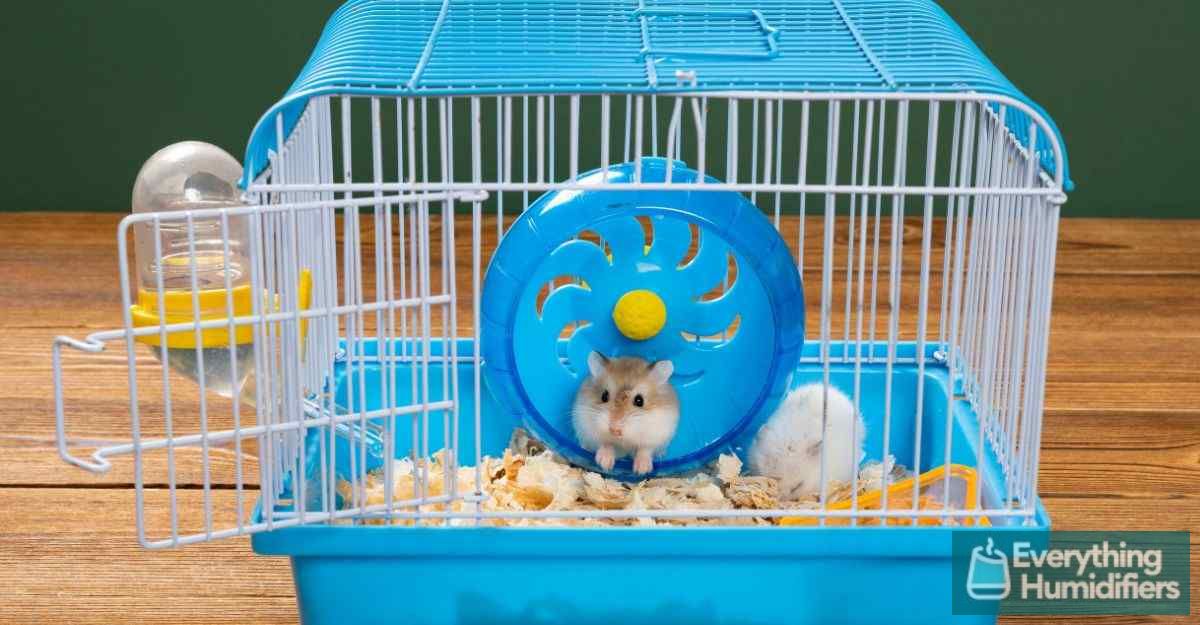
Signs that your small pets are suffering from low humidity
Most caged pets, specifically reptiles from tropical regions, require higher than average humidity. If your humidity is too low, 40% or less, your pets may exhibit signs of distress.
Look out for the following signs that the humidity is too low for your pet:
Breathing problems: Any sign of respiratory distress can indicate the air is too dry.
Dry skin and coats: Low humidity and dry air will cause dry skin and dull, lackluster coats. Reptiles with dry skin will look for water sources to soak in.
Sneezing and coughing: Allergies and harmful micro-organisms that float in dry air can cause sneezing and coughing in small pets.
Shedding: Reptiles in dry conditions will have difficulty with their skin shed.
Cracked paws or dry nose: Rabbits and guinea pigs can show signs of cracked feet and dry noses. This may indicate that humidity is too low and the air does not contain enough moisture.
Increased drinking: Dry air can cause dehydration, and your pets will seek to drink more water than usual.
Eye problems: Red, swollen, or irritated eyes can result from dry air. Your pet does not have enough internal moisture to naturally keep their eyes moist and clean.
Restlessness: Pets that show discomfort or restlessness may suffer from living in an unsuitable environment. Check your humidity levels to ensure that they are suitable for your pet.
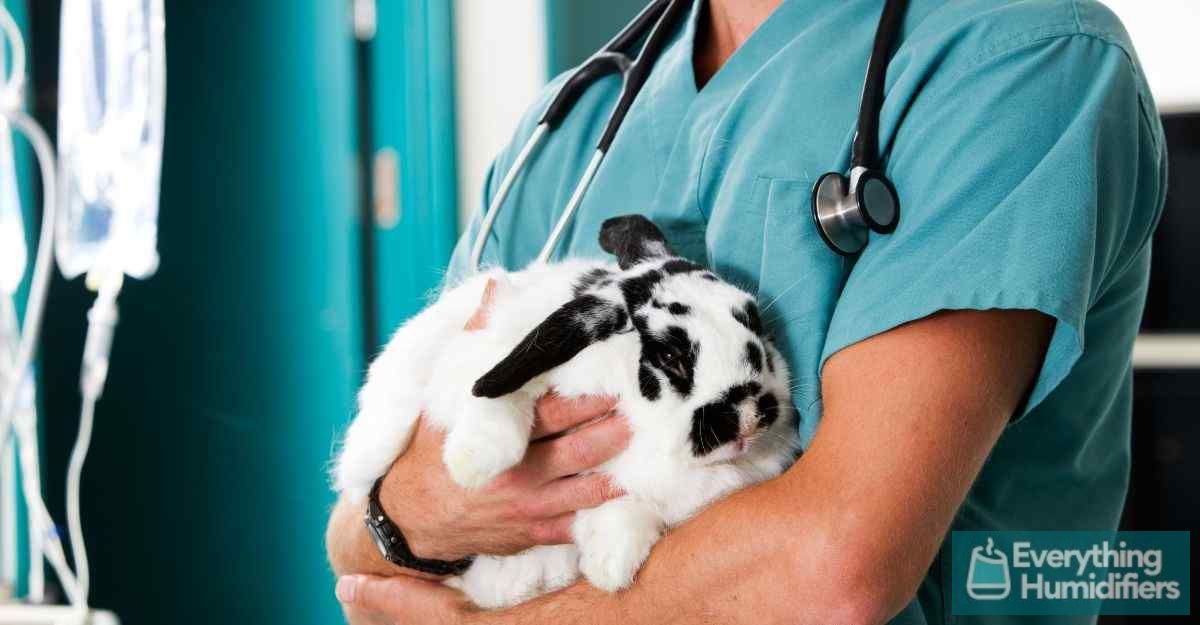
So, are humidifiers safe for small pets?
Many small pets require higher than average humidity as they live naturally in moist and warm regions.
When used appropriately and with proper precautions, humidifiers can be safe and beneficial for pets, improving their comfort and overall well-being.
By following the guidelines for operating and cleaning a humidifier and consulting with a veterinarian, as a pet owner, you can confidently utilize humidifiers to create a healthier environment for your cute, strange, exotic, or creepy pets.
Frequently Asked Questions
Can my pets benefit from using a humidifier?
Yes, pets can benefit from using a humidifier. Just like humans, pets can also experience dry skin, itchy eyes, and respiratory issues when the air is too dry. Using a humidifier can help improve their overall comfort and well-being.
Can a humidifier worsen asthma or allergies in pets?
A humidifier can often assist in reducing asthma and allergy problems in animals. However, it’s crucial to keep an eye on your pet’s health and seek veterinary advice if you observe any negative side effects. Even with the use of a humidifier, some pets may still be sensitive to certain allergies or irritants in the air.
What signs indicate a humidifier may be causing discomfort to my small pet?
Watch for excessive sneezing, coughing, wheezing, or nasal discharge in your small pet. These may indicate that the humidifier needs to be better suited for your pet or that the humidity levels are too high or low. Consult with a veterinarian if you notice any concerning symptoms.
Are humidifiers safe for small pets?
Yes, humidifiers can be safe for small pets if appropriately used. It is vital to choose the right type of humidifier and follow the manufacturer’s instructions to ensure the safety of your furry friend.
Can I use a regular humidifier for my pets?
Yes, you can use a regular humidifier for your pets if it is safe and you follow the recommendations. Remember the section above on ‘How to ensure your humidifier is safe for pets.’
Are cool-mist humidifiers safe for pets?
Cool-mist humidifiers are generally considered safe for pets. The cool mist they produce can help to relieve dryness and provide a more comfortable environment. However, it is crucial to ensure the humidifier is cleaned correctly and maintained to prevent harmful bacteria or mold buildup.


